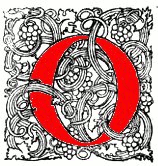Want to know how to navigate the Victorian Web? Click here.
The Edinburgh Review identifies the author as Francis Wallace Rowsell (1838-1885), who was a lawyer in the Admiralty. .

n November 1 last, the unredeemed debt of Egypt stood at 95,890,000l. But of this the Unified Debt, comprising 56,693,260l. and paying four per cent., alone represents the true sum of general indebtedness. The sums of 22,466,800l. secured on the railways, of 8,931,940l. secured on the Daira. lands, and of 7,798,090l. secured on the State Domains, ar? debts held on specific pledges, and may be described as shareholders’ capitals in a railway and two land companies. The State guarantees the payment of four per cent. on the Daira bonds, and of five per cent. on the Railway and Domain stocks, but, beyond making good any deficit which may be made by these administrations, may be said not to be bur dened with their capital debt. This is especially true of the Daira and the Domains, which were the private property of the Khedive and his family, and were made over to the State gratis to serve as security for money borrowed for public use. These three properties of Railway, Daira, and Domains, are administered by English, French, and Egyptian trustees, one of each nationality to each property. The service of the Unified Debt is looked after by European Commissioners, but the administration of the finances which furnish the interest on the debt is under an Egyptian Minister.
This seems very simple. As a naked statement of debt nothing could be simpler. A sum of 2,267,730l. has to be provided to pay interest on the Unified Debt, and a further sum, variously estimated, but which may be taken as 750,000l., has to be set aside in order to make good the deficit on the specially pledged State properties. We do not propose to. go into the controversy which has been raised about the good or bad management of these latter administrations. Baron de Malortie says of the Railway Board: ‘A more wretchedly ‘managed concern it is difficult to imagine.’ He has not words enough to express his anger at the Domains administrators, while his indignation boils over in describing the alleged shortcomings of the Commissioners of the Public Debt. . . .
[The Fundamental Problems of Egypt’s Systems of Taxation

n our view it would be more worth while for the Government to make sacrifices by selling their lands at less than their actual value, so as to bring them within the range of the general fiscal laws and produce more tax-money to the Treasury, than to allow them to continue as enclaves in the midst of the rest of taxable Egypt. In order fully to appreciate what this means, our readers must master that part of Lord Dufferin’s report which deals with the question of taxation; and they will find in chapter nine of Mr. Mackenzie Wallace's book the whole story of the inequality of taxation which is the distinguishing feature of the present system of Egyptian finance. We have not space to pass the whole of this system in review, but we may justify the somewhat unusual proposal we have made, one that may be regarded as unsound if tried by ordinary rules, but which the special circumstances seem to warrant, by saying that there are at the present moment lands in Egypt yielding 7l. net per acre which pay a tax of 7s.6d., whilst there are other lands not yielding more than 2l. 10s. which pay a tax of 11.16s
One of the causes of this strange discrepancy is to be found in the tenure by which land is held in Egypt. The fundamental Mussulman [Moslem] law by which the conqueror decided once and for ever what lands, portioned out to the faithful, should be oushouri, or tithe lands, and what lands left in the hands of the vanquished, or on which unbelievers were allowed to dwell, should be kharadji, or tribute lands, that is, lands paying a tribute of anything up to half of the produce, was never fully observed in Egypt. The original settlement was disturbed again and again as regards the oushouri, in favour of some dependent of the ruling power, and the amount of the kharadj was, under one pretext or another, increased till it exceeded the measure of the half yield. Increases were also made, under other names, to the oushouri, so that the whole plan of land taxation has got into a confusion so great that nothing but a careful cadastral survey, followed by conscientious valuation, can establish order in it. Such a survey and valuation was one of the principal items in the programme of the Commission Supérieure d'Enquête in 1878. Efforts have been made since that time to give effect to the recommendation, but with what success readers of Lord Dufferin’s report on that head can judge. The net result, however, is that the work has still to be done. Till it has been achieved, there is no possibility of dealing thoroughly with Egyptian taxation. There is no other industry in Egypt than agriculture, no other internal resource from which a finance minister can hope to draw a revenue. The other taxes, the salt tax, the fisheries tax, the date-tree tax, the professional tax, are mere auxiliaries of income. The land tax is the one corpus vile on which solid work can be done. It is obviously indispensable that it should be put on a proper footing, and the mere fact that so much opposition has been shown towards rectification ought to be taken as an indication of the necessity for it. [168-71]
Related material
- Egypt and the British Empire (homepage)
- The Egyptian Economy and Debts in 1888 (The Encylopædia Brittanica)
- The Agriculture and Industries of Egypt (The Imperial Gazetteer, 1856)
- “England in Egypt” (text of entire article from Westminster Review, 1884)
- Palmerston, the Imperialism of Free Trade, and the Inadvertant Destruction of Turkish and Egyptian Rulers
Bibliography
Rowsell, Francis Wallace. “The Egyptian Question.” The Edinburgh Review. 159 (1884): 145-85. Hathi Trust Digital Library online version of a copy in the University of Michigan Library. Web. 1 September 2020.
Wallace, D. McKenzie. England and the Egyptian Question. London: Macmillan, 1883.
Last modified 2 September 2020